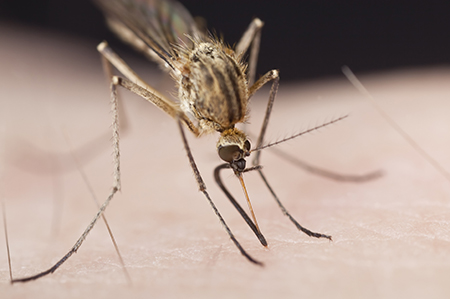For National Science and Engineering Week , we are celebrating 10 great scientific advances made at the University of Liverpool. Over the ten days of the event, we will be highlighting a different advance each day to show what science can achieve.
The last advance in our series shows how one great discovery can lead to many more.
The first British recipient of a Nobel Prize was Ronald Ross who discovered that malaria is transmitted by mosquitoes. Later a professor at the University of Liverpool, Ross laid down the foundations for combating a disease which has killed millions throughout history.
Work on malaria at the University of Liverpool continues to this day with numerous new drugs developed by researchers. Scientists are now working on how the disease will spread due to climate change.
More than one hundred years after Ross discovered how malaria is transmitted, the University is leading a clinical trial in Africa to test the body’s immune response to a candidate malaria vaccines for newborn babies – offering hope of preventing the disease in millions of children.
To see the other nine great advances, visit the University’s news pages during National Science and Engineering Week (14-23 March).
If you want to find out more about current research in this area at the University of Liverpool, visit the Institute of Infection and Global Health website, or go to our study pages to find out more about studying pharmacology.
